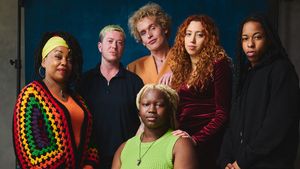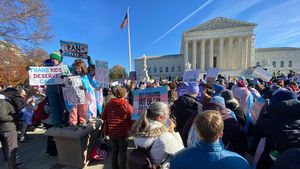
Treatment GuideJust DiagnosedSex & DatingAfrican AmericanStigmaAsk the HIV DocPrEP En EspañolNewsVoicesPrint IssueVideoOut 100
CONTACTCAREER OPPORTUNITIESADVERTISE WITH USPRIVACY POLICYPRIVACY PREFERENCESTERMS OF USELEGAL NOTICE
© 2025 Pride Publishing Inc.
All Rights reserved
All Rights reserved
Scroll To Top
By continuing to use our site, you agree to our Privacy Policy and Terms of Use.
Over 4,700 Kenyan and Ugandan heterosexual serodiscordant couples'in which one partner is HIV-positive and the other is negative'took part in a recent trial studying the effectiveness of pre-exposure prophylaxis, a.k.a. PrEP, the use of HIV medication by those who are not HIV-positive as a prevention measure. One third of uninfected partners were given a placebo, another third the drug tenofovir (Viread), and the final third took Truvada, a pill that contains tenofovir and the drug emtricitabine. The results, released in July, were staggering: Compared to those on the placebo, those taking tenofovir had a 62% lower transmission rate, and the Truvada users had 73% fewer transmissions. Researchers behind the study, sponsored by the University of Washington, stopped the trial, declared the PrEP therapy an unequivocal benefit, and distributed the drugs to all participants. Another recent study, sponsored by the U.S. Centers for Disease Control and Prevention, distributed Truvada to certain high-risk heterosexual HIV-negative individuals in Botswana. Although that study had a smaller focus group of 1,200 participants, the numbers were still extremely encouraging, with 62% fewer new HIV cases among those receiving the drug than those given a placebo. Back in America, many hope the results will eventually lead to Truvada distribution to all serodiscordant couples and other high-risk individuals. Recent studies have already shown that the PrEP therapy is effective in transgender women and men who have sex with men. But Mitchell Warren, the executive director of the New York'based AIDS Vaccine Advocacy Coalition, says widespread distribution of Truvada will likely happen overnight. There are two reasons for restraint, according to Warren. First, the two successful studies follow a trial that was stopped for the complete opposite reason that the recent couples' trial was halted'the drug didn't seem to work with high-risk heterosexual African women. Second, budgets are an issue. As AIDS Drug Assistance Programs are cut across the country, it's hard to conceive of states having the money to distribute Truvada widely. 'There's a kind of champagne celebration on one hand and a hangover on the other, because there's a tremendous burden on our system on how to implement this,' Warren says. The issue of cost is one that's already being addressed, according to a report from Project Inform, a San Francisco-based HIV organization. Following the successful trials featuring PrEP and gay men, the CDC began initiating discussions with insurers, some of which demonstrated 'a willingness to reimburse PrEP in the limited circumstances described by the CDC's interim guidance,' while Gilead, the maker of Truvada, has shown interest in implementing a patient assistance program akin to ADAPs, which are currently used by tens of thousands of people. Lisa Sterman, a San Francisco'based physician and board member for the San Francisco AIDS Foundation, is convinced of Truvada's benefit and already prescribes it to high-risk patients. While she's careful to ask potential users about diabetes history and kidney problems'conditions she says can be exacerbated by Truvada'Sterman believes the drug is a no-brainer for those regularly exposed to HIV and that the unsuccessful PrEP trial likely failed because of spotty adherence. '[PrEP] works if people comply with it,' she says. 'I think it works 99% of the time if used properly.'
From our Sponsors
Most Popular
Lexi Love comes out as HIV+ after Trump deletes federal resources
January 23 2025 11:23 AM
Grindr is reminding us why jockstraps are so sexy and iconic
May 02 2025 5:36 PM
BREAKING NEWS: Trump admin moves to end federal HIV prevention programs
March 18 2025 6:10 PM
Trump's orders prompt CDC to erase HIV resources
January 31 2025 5:29 PM
Celebrating Black History Month with our annual African American issue
February 01 2025 3:28 PM
Tyler TerMeer vows to continue to fight for health care for all
January 28 2025 3:00 PM
Discover the power of Wellness in your life
March 26 2025 12:41 PM
Plus: Featured Video
Latest Stories
Dancer. Healer. Survivor. DéShaun Armbrister is all of the above
July 02 2025 8:23 PM
Two right-wing Supreme Court justices signal they may uphold access to PrEP and more
April 21 2025 4:10 PM
Broadway's best raise over $1 million for LGBTQ+ and HIV causes
April 03 2025 7:15 PM
Plus nominated for 2025 GLAAD Media Award
January 22 2025 12:42 PM
'RuPaul's Drag Race' star Trinity K Bonet quietly comes out trans
December 15 2024 6:27 PM
AIDS Memorial Quilt displayed at White House for the first time
December 02 2024 1:21 PM
BREAKING: Supreme Court rules to save free access to preventive care, including PrEP
June 27 2025 10:32 AM
1985: the year the AIDS crisis finally broke through the silence
June 26 2025 11:24 AM
Trump admin guts $258 million in funding for HIV vaccine research
June 03 2025 3:47 PM
500,000 Children at Risk: PEPFAR Funding Crisis
April 08 2025 3:51 PM
The Talk Season 5 premieres this spring with HIV guidance for the newly diagnosed
March 26 2025 1:00 PM
Jess King is here to help you live your happiest, healthiest life yet
March 24 2025 4:35 PM
A camp for HIV-positive kids is for sale. Here's why its founder is celebrating
January 02 2025 12:21 PM
VIDEO: A man living with HIV discusses his journey to fatherhood
June 10 2025 4:58 PM
HRC holds 'die-in' to protest Trump health care cuts
April 28 2025 2:11 PM
Season 4 of The Switch on resilience & radical self-love returns this spring
March 26 2025 12:20 PM
Gerald Garth is keeping people of color happy and healthy through trying times
March 11 2025 3:38 PM
This long-term HIV survivor says testosterone therapy helped save his life.
December 16 2024 8:00 PM
Ricky Martin delivers showstopping performance for 2024 World AIDS Day
December 05 2024 12:08 PM












































































